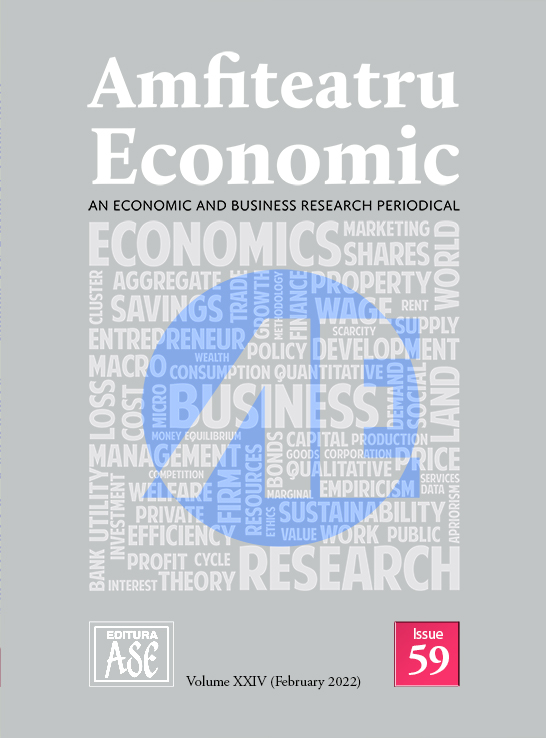Quantifying the Digitalisation Impact on the EU Economy. Case Study: Germany and Sweden vs. Romania and Greece
Quantifying the Digitalisation Impact on the EU Economy. Case Study: Germany and Sweden vs. Romania and Greece
Author(s): Romeo-Victor Ionescu, Monica Laura Zlati, Valentin Marian Antohi, Florina Oana Vîrlănuță, Silvius StanciuSubject(s): Business Economy / Management, ICT Information and Communications Technologies
Published by: EDITURA ASE
Keywords: digitalisation; digitalisation indicators; digitalisation development scenarios: the baseline scenario, the high growth scenario and the challenge scenario; the econometric model of digitalisation;
Summary/Abstract: The digital economy is an alternative to the traditional economy, an area of the future on which investment and R&D efforts are focused both by European forums and by Member States, which have understood the importance of the domain with the onset of the pandemic crisis. The aim of the research is to analyze and predict, on the one hand, the impact of digitalisation on EU Member States’ economies by means of the three scenarios for the evolution of the digital component of the economy for the horizon 2025 (the baseline scenario, the high growth scenario and the challenge scenario), and, on the other hand, the Member States’ ability to achieve the targets proposed by these scenarios. The analysis covers the period 2013-2025 and quantifies the dynamics of the digitalisation phenomena and processes based on dedicated statistical analyses (frequency series analysis, application of the unicriterion critical probability test, application of the Enter method, performing Pearson correlation tests) by means of the IBM-SPSS 25 software. The purpose of this research is the provision of relevant solutions to decision makers in the development of digitalisation. The study highlighted the placing of the results in favourable scenarios, the current trend regarding digital economy evolution, and presented the most likely scenario to be achieved in terms of knowing the provider offer and the needs of service users. The topicality of the study targets a new approach on the foundations of financial allocations for the sustainable development of the digital economy needed in the current conditions of the global crisis and of the pandemic for the implementation of digital economy development policies. A novelty of this research is the conceptualization, validation and testing of an econometric model capable of quantifying the realism of the scenarios proposed by the European Union regarding the development of the digital economy.
Journal: Amfiteatru Economic
- Issue Year: 24/2022
- Issue No: 59
- Page Range: 61-76
- Page Count: 16
- Language: English

